 Ouagadougou – Thursday 13 October 2016
Ouagadougou – Thursday 13 October 2016
The morning of the fourth day of the meeting (chairman Br. J. Ignacio Santaolalla) was dedicated to the description of certain initiatives of the general curia: CADIS, the former CTF; various activities connected with the ministry of the Order.
Fr. Aris Miranda, the member of the General Consulta responsible for ministry, warmly thanked all the major Superiors for the great readiness to help and generosity that they had demonstrated over the previous year in supporting the various initiatives to address emergencies and the ministry of the Order.
The meeting began with a reading of a Biblical passage from Exodus 3:7-8: ‘I have seen the affliction of my people…and have heard their cry…I know their sufferings and I have come down to deliver them’. This is the background at the level of ideals and proposals against which every initiative involving emergency action by CADIS takes place.
The recent initiatives under various headings engaged in by members of CADIS were then described: in Haiti after the recent typhoon Matthew (over the following days Fr. Sam Cuarto and Anita Ennis – a member of the Lay Camillian Family – will leave for Haiti for a first survey of needs and to offer the first systematic forms of intervention); in Italy after the earthquake in the centre of Italy; in India after the flooding in Bihaji; in Austria with aid for the Syrian, Iraqi and Pakistani refugees; in Nepal after a devastating earthquake; and in the Philippines following the typhoon Haiyan (which caused over ten thousand deaths).
Often these catastrophic events afflict geographical areas (the Philippines, India, Thailand, Benin, Haiti) that are near to nations where we are present as Camillians with our communities and our activities involving health care and formation, but above all they afflict countries that are endemically poor, with large parts of the population already living in situations of deep poverty.
CADIS arose out of the basic idea (2000-2007) of creating a team that would be trained in a professional sense to intervene in cases of health-care and social emergencies. In the United States of America in the years 2007-20014 the NGO ‘SOS DOCTORS’ was founded. As early as 2014, the institutional and operational identity of CADIS began to be outlined.
CADIS is improving its own internal structure and its internal staff organisation in order to institutionalise its operational processes; to produce its operational manual; to train its own members at a professional level; and to raise the funds that are needed for its own activities in line with the criteria of transparency and internal and external consistency. The principal values that are pursued by CADIS are solidarity, listening, cooperation, transparency and a capacity for team-work.
One of the current priorities of CADIS is the formation of its members in order to achieve suitable skills and expertise and a suitable methodology: this is not only a matter of bringing water and medical supplies but also of bringing aid that is able to develop the resilience of people afflicted by the tragedy of disasters.
An attempt is made to organise projects that are also sustainable in an economic sense: the raising of necessary funds should be carried out according to the logic of truth and evident transparency.
The beneficiaries of the actions of CADIS are principally the most vulnerable families, above all those that live in the most isolated way geographically and the most excluded way socially, for whom even minimal access to minimal help is precluded.
The aim of the aid revolves around four ‘r’s. The first ‘r’ is an immediate response to an emergency and the identification of needs for long-term projects; the second ‘r’ is rehabilitation; the third ‘r’ is resilience (developing the endogenous capacity of people so that they can address forms of resistance and subsequent emergencies); and the fourth ‘r’ is reform of the ‘policies’ of a country so as to organise the social and civil communities according to the criteria of justice and responsibility for the common good.
In June 2016 CADIS had its civil juridical status recognised by the Italian State: the founder was the Order of Camillians in the person of the pro-tempore Superior General; the participants are Italian or non-Italian entities and Camillians or non-Camillians who nonetheless share the spirit of service, of intervention and of care specific to the Camillians. CADIS has its own governing board, its own president (Br. J. Ignacio Santaolalla), and its own executive director (Fr. Aris Miranda): all these posts have a mandate of three years. The invitation extended to the various Provinces is to coordinate the various offices of ‘national CADIS’ in their own regional areas, perhaps 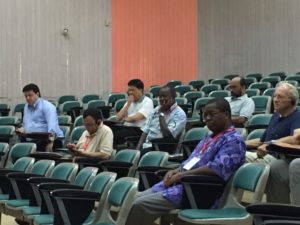 engaging in the civil registration of this organisation in their own nations.
engaging in the civil registration of this organisation in their own nations.
Projects and programmes now underway:
- In the Philippines: reforestation and the retrieval of bio-diversity, and a development programme for subsistence after the impact of the typhoon (‘care for our common home’).
- In Austria: facilitating social inclusion and cultural integration for about 200 Syrian and Iraqi women refugees (the teaching of German and instruction in Austrian culture).
- In Nepal: social inclusion of the victims of the earthquake in a disadvantaged geographical area at the foot of the Himalayas (psycho-social intervention for the development of resilience).
- The formation of members in Bangkok (November 2016), constructing and strengthening the skills and expertise of the leaders of CADIS.
- The offering of a master’s degree (course of specialisation) in ‘humanitarian care’ in cooperation with the Camillianum and Caritas Internationalis. The final outcome should be the offering of a specialist manual on the subject of humanitarian aid in emergency situations.
- A twinning project for fundraising: Australian and Taiwan have responded to the needs provoked by the disasters that afflict the region of Asia; Europe will deal with initiatives in Africa; and (North and South) America will deal with emergency initiatives in the Pan-American area.
A concrete proposal: the organisation of a regional CADIS in each Province and securing – if this is possible – its civil registration; identifying two religious – who could be part time – who will follow these projects; cooperating with the solidarity fund for the first initiatives.
Fundraising: the funds come principally from Italian Caritas, from Madian Orizzonti, from the Pro.Sa. of the Holy See, from other religious Congregations, from benefactors above all in Italy, and from other Camillian Provinces and Delegations (Spain, Taiwan, Australia, Germany, the United States of America, Brazil, Australia…); the campaign for fundraising in India; and various international organisations. For the moment, the funds are linked to individual projects: a body for the fundraising campaign for the creation of an ongoing fund, with a constant flow of resources, has not yet been activated.
At the present time, 77% of the funds has been totally invested in direct projects; the remaining 33% meets the cost of staff/personnel of the headquarters in Rome. The running costs of the headquarters of CADIS in Rome are met by the generalate house.
The global vocation and the charismatic mission of CADIS is to respond to the vulnerability of man, prostrated in his dignity and his primary needs by various natural and non-natural disasters. It offers a response in line with the coordinates of professional practicality (the aim is not only to respond to disasters after their impact but also to foresee them – according to what is realistically possible, reducing their future impact when they occur again) and of tenderness in compassion, in order to create pathways of a psycho-social nature that lead to the growth of resilience.
Some questions were asked and some observations were then made from the floor.
Emphasis was laid upon the need for precise accounting at an economic level – as regards both income and outgoings (one is dealing here with creating a culture and a mentality of clarity and honesty). The commitment to transparency concerns both ‘general’ donations that are not intended for specific projects and donations intended for very detailed projects for action.
Another sensitive area is that of communication in relation to the initiatives of CADIS: sharing news about projects that are underway is not always easy. This is an appeal to everyone to cooperate in fundraising, in the description and sharing of projects, their application and their implementation. Better communication of this kind would also be beneficial in achieving a more detailed and comprehensive knowledge about the activities of the association, which would in turn have beneficial effects at the level of fundraising.
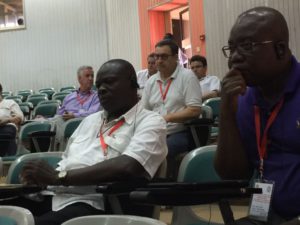 The request and proposal was made to CADIS to organise itself so as to be able to intervene in emergencies generated by situations of war as well.
The request and proposal was made to CADIS to organise itself so as to be able to intervene in emergencies generated by situations of war as well.
Fr. Aris offered further clarifications on the activity of the Secretariat for Ministry (which is made up of representatives of the various areas of the Camillians world: Europe, Italy, Francophone Africa, Anglophone Africa, pan-America, and Asia).
The following meetings were held:
- 21-24 April 2016 ‘Madrid Exchange’: an international meeting of the directors of Camillian centres for pastoral care. The proposals that sprang from the meeting and which should be developed in the near future were as follows: encouraging cooperation between the Camllianum and other outlying centres; encouraging the enrolment of new students at the Camillianum; and greater cooperation between the outlying centres for pastoral care, above all this should be offered by those that are more structured to those that are less structured.
- 4-6 November 2016: an international conference at Rome of Camillians who are involved in providing pastoral care in health – chaplains (47 enrolments so far).
- 26-30 April 2017: at San Paolo in Brazil, a meeting of Camillian parish priests and rectors.
The proposal was made to establish in our Order a ‘day for Camillian ministry’ in which greater visibility could be given to a systematic analysis of Camillian ministry (spiritual assistance in hospitals); to the involvement of lay people who work with us (offering witness and spiritual quality of a Camillian matrix) and of the local Churches in which we live (cooperation with diocesan offices for pastoral care in health); and to thinking about the possibility of inter-religious dialogue specifically in the field of the spirituality of health and care.
It was observed that in some areas of the world it is increasingly difficult (because this ministry not very valued, esteemed or recognised) to exercise the very simple and daily ministry of a chaplain (in Europe); in other areas this ministry is not very structured because in overall terms Catholic Christians constitute an infinitesimal minority (e.g. Thailand).
It was observed that amongst Camillians as well a great readiness to engage in hospital ministry, and its attractiveness for them, are not to be seen. In addition, at times this ministry is reduced to the ministration of the sacraments and/or the Eucharist alone and there is no authentic involvement in the meaning of this ministry according to the logic of ‘global pastoral care’ for patients/suffering people in hospitals and the personnel who work in health-care institutions.
Being a ‘chaplain’, above all in the secularised context of Europe, is a very frustrating experience for various reasons: not being trained to receive a rejection and the ‘non-significance’ of the role; the expansion of the very concept of illness which is not confined to the period of hospitalisation; and the need to have the back-up of a ‘Camillian hospital community’ which allows the development of a style of ministry in an increasingly effective way and the working through of the tensions and difficulties that arise.
In the afternoon we paid tribute to the centre for the rehabilitation and social and professional reintegration of young women dedicated to Fr. Celestino Di Giovanbattista who was killed a few years ago when exercising his ministry with the inmates of the prison of Ouagadougou. The sister and the two nephews of Fr. Celestino, from the town of his birth in the Province of Aquila, were also present. We prayed at his grave deeply moved: Fr. Celestino was buried in the compound of the St. Camillus Parish of Ouagadougou where for twenty years he had been the parish priest, winning the esteem and the affection of the people. This was something that we were able to touch with our own hands that evening.
Afterwards we went to the ‘St. Camillus’ parish church for a celebration of the Eucharist during which the decree of the Superior General for the canonical erection of the Vice-Province of Burkina Faso to the status of a Province (the first Camillan Province in Africa and the second in the Order in terms of the number of its members) was read out. This celebration witnessed the thrilling and participatory flow of tens of Camillian men religious and of women religious of the Daughters of St. Camillus; of the faithful and friends of the Camillians; of the Cardinal of the diocese of Ouagadougou; and of the ‘Camillian’ bishop, Msgr. Prosper Kontiebo. We also visited the small Camillian museum which had been organised for the occasion and has the goal of establishing and celebrating the Camillian commemoration of our fifty years in Burkina Faso (previously the Upper Volta).



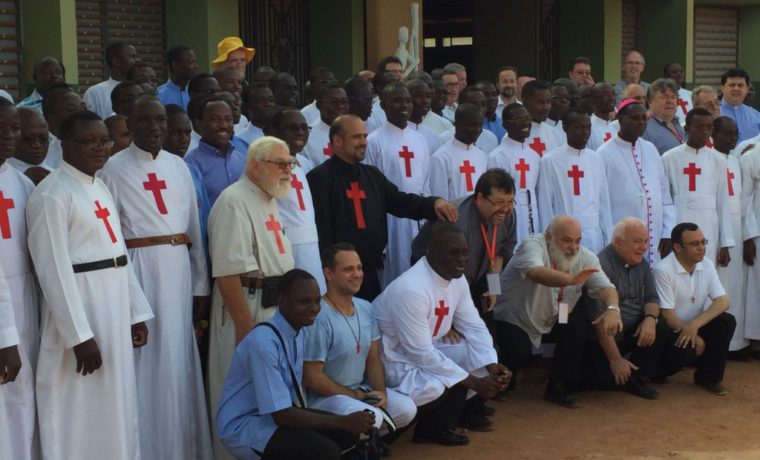





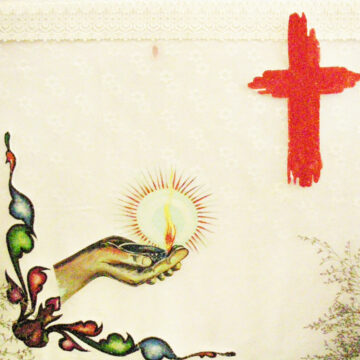
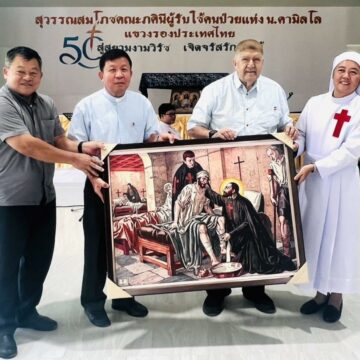
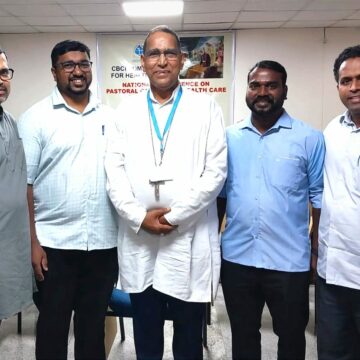
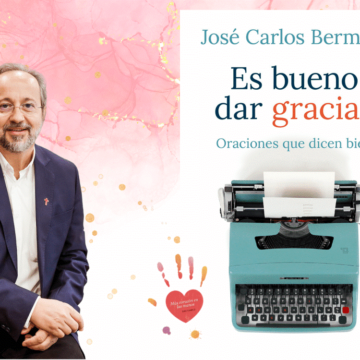

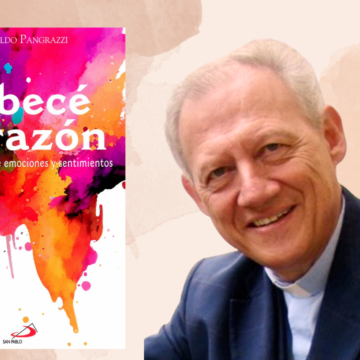
Camillians on Facebook
Camillians on Twitter
Camillians on Instagram